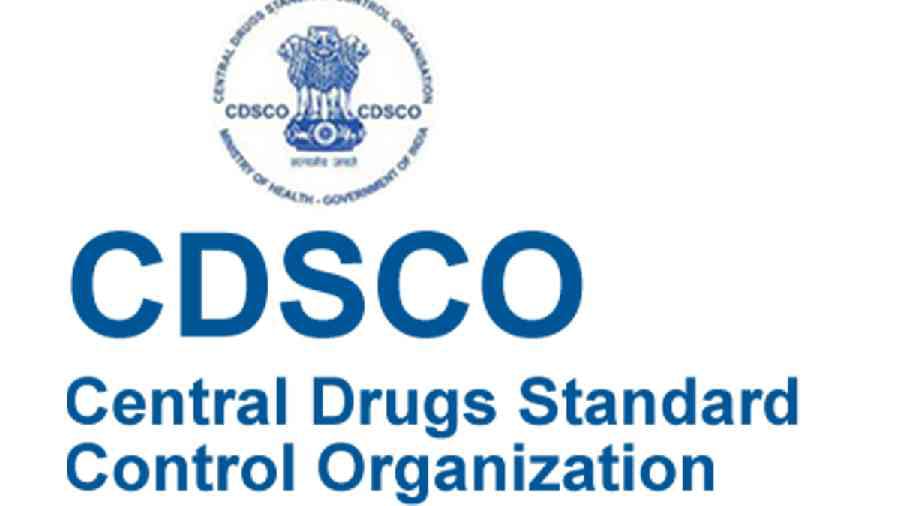![]()
The Central Drugs Standard Control Organization (CDSCO) is India’s national regulatory authority for pharmaceuticals, medical devices, cosmetics, and various healthcare products. Operating under the Directorate General of Health Services, Ministry of Health & Family Welfare, CDSCO ensures public health safety through stringent regulations on drug approval, quality control, and monitoring. Its multifaceted roles and responsibilities cover everything from drug licensing to post-marketing surveillance, making it a vital authority in the healthcare sector.
What is CDSCO?

CDSCO is responsible for the regulation and approval of new drugs, clinical trials, and standards for drugs, medical devices, and vaccines. The organization plays a critical role in ensuring that medicines available to the public are safe, effective, and meet quality standards.
Key Divisions of CDSCO:
- Drug Control: Overseeing new drug approvals and the standards of existing drugs.
- Medical Device Regulation: Licensing, approval, and quality control of medical devices.
- Cosmetics Control: Ensuring the safety and quality of cosmetics sold in India.
- Pharmacovigilance: Monitoring the safety of marketed drugs and medical devices.
Functions of CDSCO

1. Drug Approval and Licensing
CDSCO is the primary body responsible for granting approvals for new drugs. Before a drug enters the Indian market, it must undergo rigorous clinical trials, to ensure its safety and efficacy. CDSCO evaluates the clinical trial data and decides whether a drug should be approved for public use. Additionally, the organization grants licenses for importing and exporting pharmaceuticals, vaccines, and medical devices.
2. Regulation of Clinical Trials
Ensuring that clinical trials are conducted ethically and scientifically is another key function of CDSCO. The organization oversees every phase of clinical trials for drugs and medical devices in India. Through rigorous protocols, CDSCO protects patient safety and ensures the authenticity of clinical trial results. A robust regulatory framework ensures that trials adhere to international standards.
3. Pharmacovigilance and Post-Marketing Surveillance
Once drugs are approved and available in the market, CDSCO monitors their safety through pharmacovigilance programs. Post-marketing surveillance is critical in identifying adverse drug reactions (ADRs) that may not have been evident during clinical trials. The Pharmacovigilance Program of India (PvPI), initiated by CDSCO, continuously tracks the safety of drugs, ensuring prompt corrective actions when necessary.
4. Ensuring Quality Standards
The safety and efficacy of drugs depend on stringent quality controls. CDSCO sets national standards for pharmaceuticals and medical devices, ensuring compliance with the Drugs and Cosmetics Act of 1940. This includes overseeing manufacturing practices, ensuring that drugs and devices are produced in certified facilities, and conducting regular inspections.
5. Import and Export Regulation
As a regulatory authority, CDSCO plays a vital role in controlling the import and export of drugs, vaccines, and medical devices. The organization ensures that only quality-assured drugs enter or leave the country, facilitating global trade while maintaining public health safety.
6. Medical Devices Regulation
In addition to pharmaceuticals, CDSCO regulates medical devices, which are crucial in modern healthcare. CDSCO ensures that devices such as diagnostic tools, implants, and medical equipment meet the necessary safety and performance standards. With the recent introduction of the Medical Device Rules, 2017, CDSCO’s regulatory framework has expanded to include more stringent requirements for the manufacturing, approval, and post-market surveillance of medical devices.
7. Licensing and Inspections
CDSCO grants licenses for drug manufacturing and import. It ensures compliance with Good Manufacturing Practices (GMP) and Good Laboratory Practices (GLP) by conducting periodic inspections of pharmaceutical manufacturing units. Non-compliance with regulations can result in the suspension or cancellation of licenses, thus maintaining industry standards.
Key Initiatives of CDSCO
1. E-Governance: SUGAM Portal
CDSCO has implemented the SUGAM portal to streamline regulatory processes, an online platform where pharmaceutical companies can submit applications for drug approvals, licenses, and clinical trial approvals. This initiative has brought transparency and efficiency to the regulatory process, reducing paperwork and enhancing stakeholder communication.
2. Pharmacovigilance Program of India (PvPI)
As a part of its mission to safeguard public health, CDSCO launched the Pharmacovigilance Program of India (PvPI) in collaboration with the Indian Pharmacopoeia Commission. PvPI focuses on detecting, assessing, understanding, and preventing adverse effects or other drug-related issues. The program encourages healthcare professionals and patients to report adverse drug reactions (ADRs), enabling CDSCO to take timely actions such as issuing safety warnings or recalling products.
3. National List of Essential Medicines (NLEM)
CDSCO plays an integral role in updating and maintaining the National List of Essential Medicines (NLEM). The NLEM ensures that essential drugs are available to the public at affordable prices while maintaining their quality and efficacy. This initiative aims to promote rational drug use and ensure that healthcare resources are efficiently utilized.
Challenges Faced by CDSCO
Despite its critical role, CDSCO faces several challenges:
- Resource Constraints: There is a need for greater resources to effectively monitor and regulate the ever-growing pharmaceutical and medical device industries.
- Global Alignment: Ensuring that Indian regulations keep pace with global standards, especially with the rapid advancement in pharmaceutical and medical device technologies, poses a challenge.
- Regulatory Delays: The complexity of drug and device approval processes can sometimes lead to delays, impacting access to innovative treatments.
Conclusion
The Central Drugs Standard Control Organization (CDSCO) is a crucial pillar in India’s healthcare system, ensuring that pharmaceuticals, medical devices, and other healthcare products are safe, effective, and of high quality. By overseeing drug approvals, regulating clinical trials, monitoring post-marketing drug safety, and implementing quality standards, CDSCO plays a pivotal role in protecting public health.
